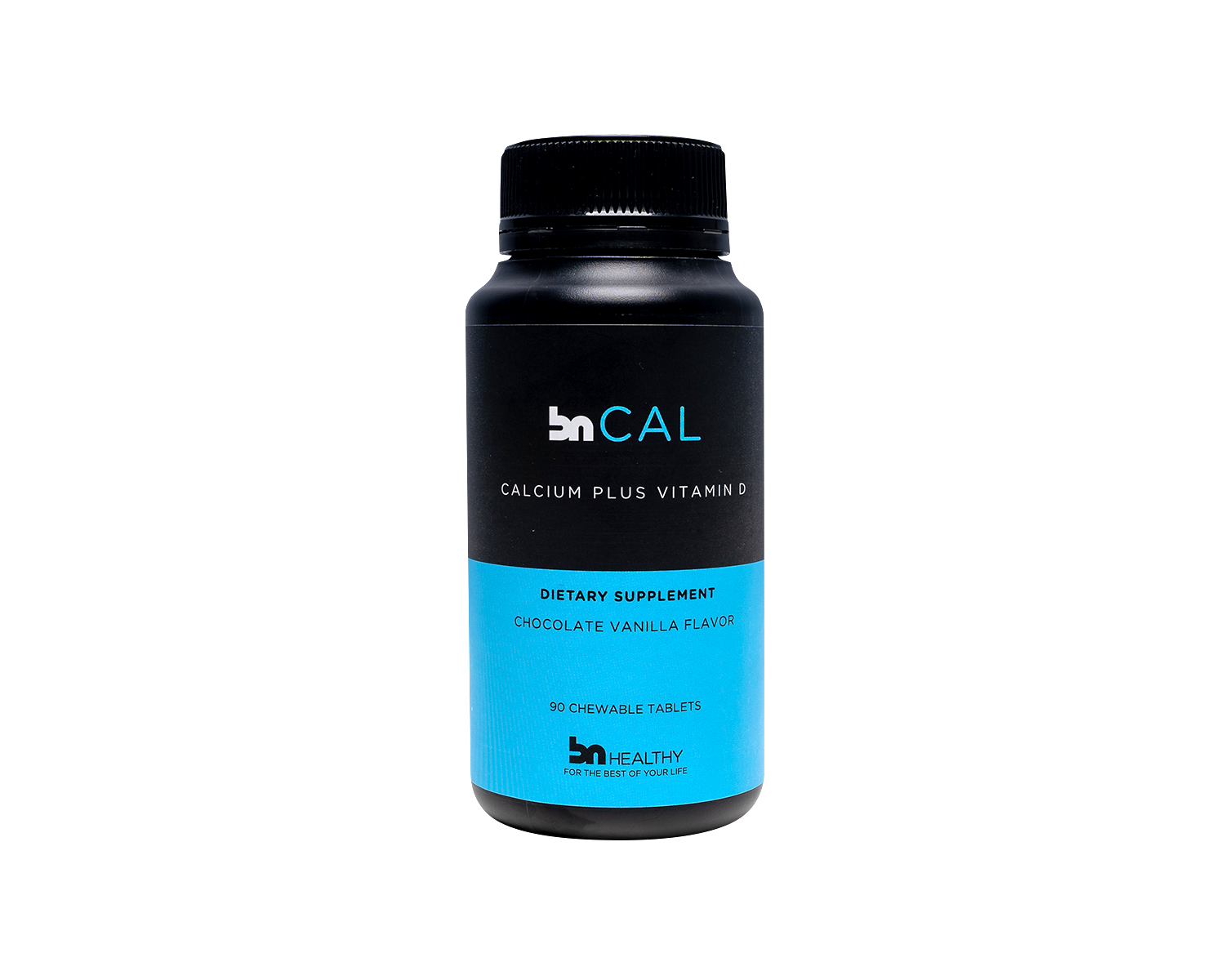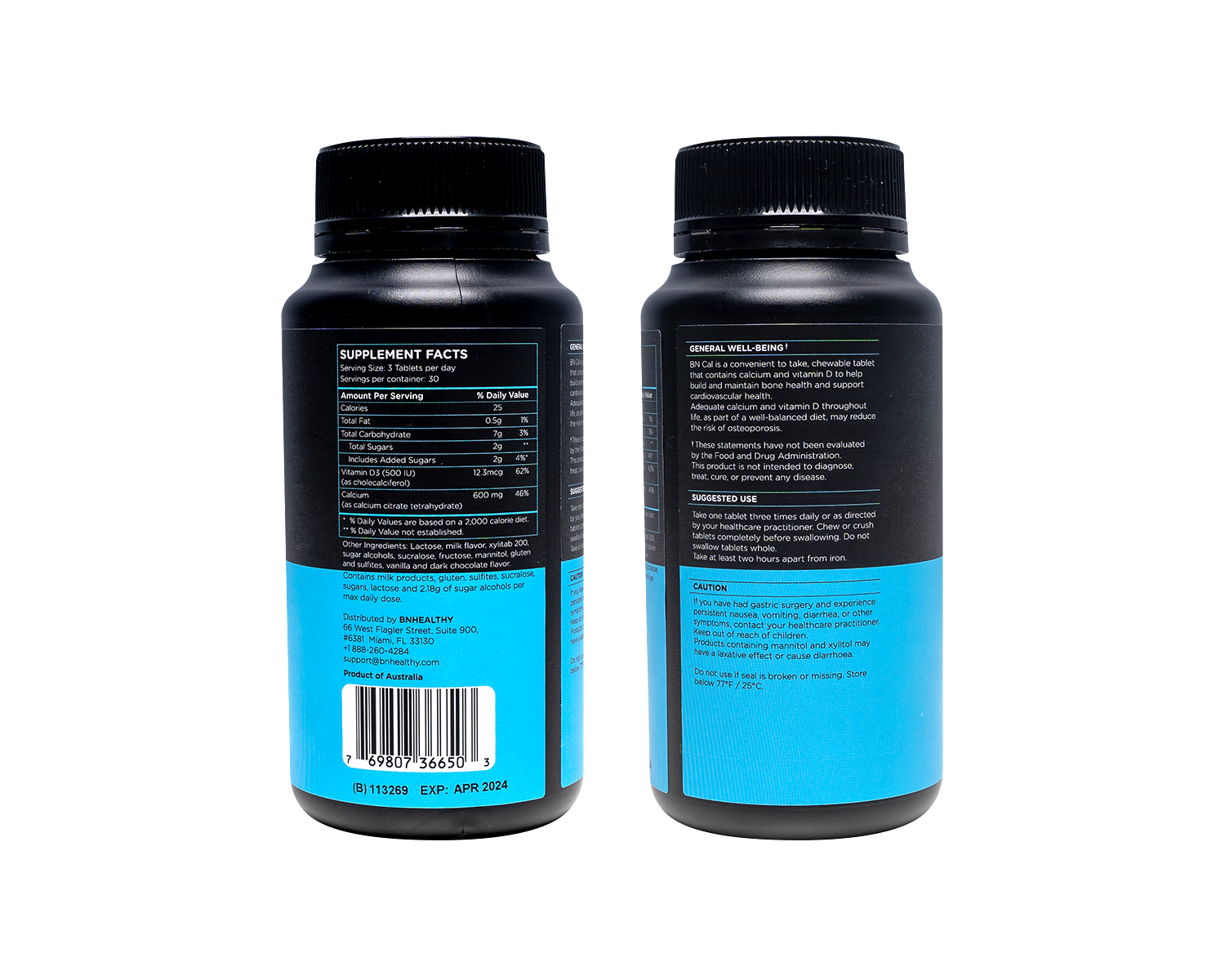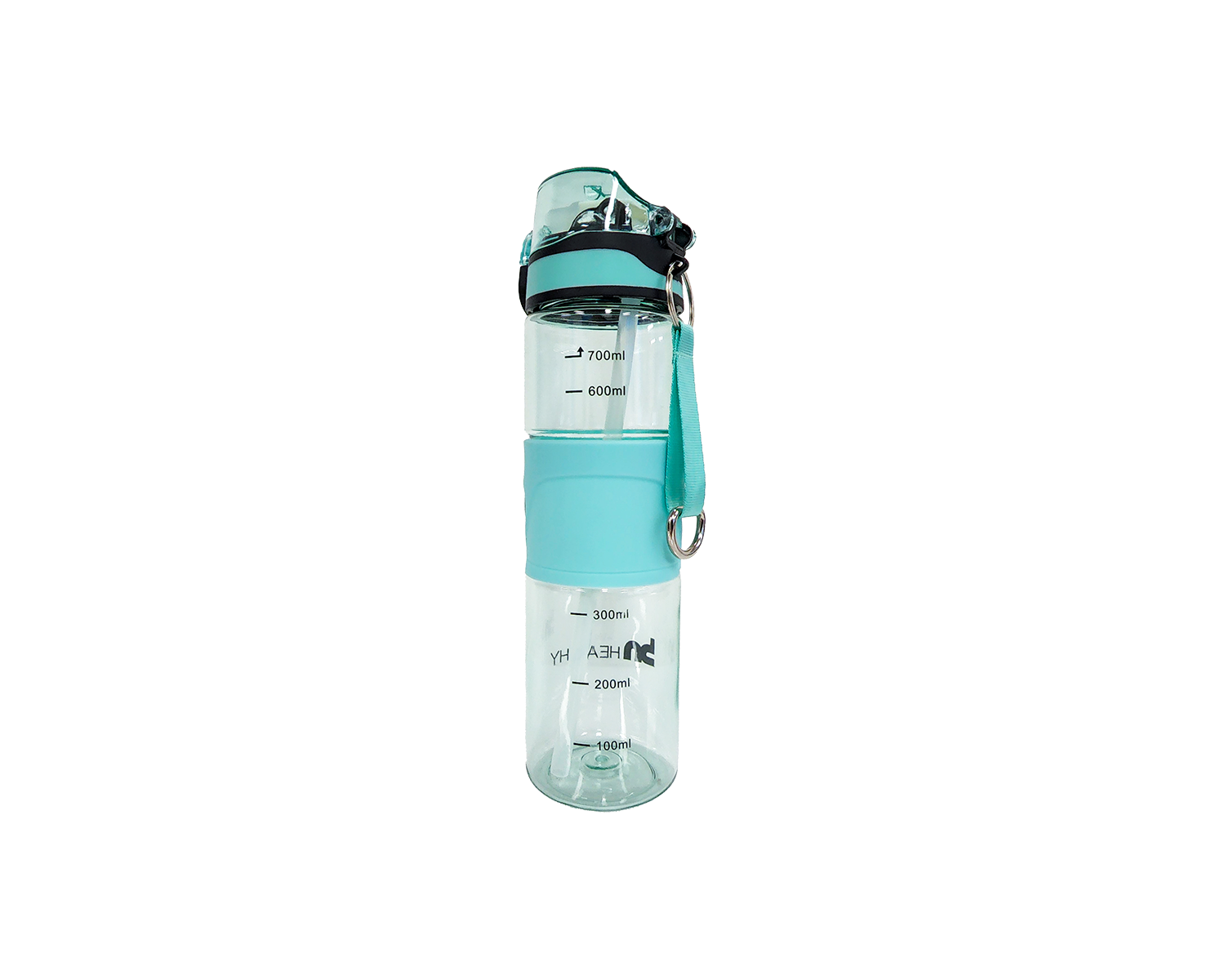January 2023
Why is Calcium Essential
After Bariatric Surgery?

Following Bariatric Surgery, calcium is considered an essential nutrient to supplement. So why do we need calcium?
Calcium is crucial in preventing bone loss, maintaining strong bones and healthy muscles, and regulating nerve signals throughout the body. It also helps keep blood pressure at normal levels, aids in clotting, and prevents the calcification of soft tissues.
Unfortunately, many people don't get enough calcium from their diet after Bariatric Surgery due to reduced food intake or malabsorption of essential vitamins - making it even more crucial for them to ensure adequate amounts through supplementation to prevent bone loss. Taking steps such as adding calcium-rich foods into your diet or supplementing with additional calcium can help you maintain optimal health after bariatric surgery.
The Importance of Calcium After Bariatric Surgery
A portion of the stomach is removed during Gastric Sleeve Surgery. With Gastric Bypass Surgery, a portion of the digestive tract is "bypassed," as the name implies.
While this helps you lose weight because you are eating less and feeling fuller much sooner, it reduces the absorption of crucial vitamins and minerals. B12, iron, and calcium are predominantly implicated, as they need stomach acid to break down and absorb properly. As bariatric patients usually have reduced availability of stomach acid, a highly absorbable calcium supplement is required to optimize calcium levels in the body.

Before Bariatric Surgery, the body absorbs about 40% of the calcium in the foods eaten. After surgery, calcium absorption is lowered to 6-9% due to the lack of acid in the gastric environment. This means more significant amounts of calcium are needed to meet the daily requirements.
Why is Calcium Important?
The consequences of not taking vitamins after Gastric Bypass Surgery are very likely long-term nutrient deficiencies. For calcium deficiency, that could look like:
- Brittle nails
- Cramps
- Insomnia
- Irritability
- Tooth decay
- Osteoporosis

If you are experiencing symptoms, it probably means that you have been deficient in calcium for quite some time. If you are experiencing any of these symptoms, it is vital to bring them up with your healthcare provider.
Calcium Citrate vs Calcium Carbonate
Not all calcium is created equal. As a bariatric patient, the kind of calcium you consume makes a difference. There are two types of calcium: calcium carbonate and calcium citrate. Calcium citrate is the best form of calcium for bariatric patients.
Calcium carbonate is composed of calcium, oxygen, and carbon. Calcium citrate comprises calcium, oxygen, carbon, and citric acid. As such, the two compounds differ in their chemical structure and absorption in the body.
Calcium carbonate is calcium that requires stomach acid to digest and absorb. It is frequently used to alleviate heartburn, acid reflux, and stomach distress.
Calcium citrate does not need stomach acid to break down and absorb. It is typically used to correct calcium deficiencies, particularly after Bariatric Surgery.
Why Bariatric Patients Need Calcium Citrate
Calcium citrate has greater bioavailability for bariatric patients and people with impaired digestion or absorption issues. Because it does not need to rely on stomach acidity for increased absorption rates like calcium carbonate does, this form of supplemental calcium can be more readily absorbed by anyone regardless of how much acid they have in their stomach - making it an excellent choice for gastric bypass patients.
The American Society of Metabolic Surgeons conducted extensive research into the daily needs of all nutrients after bariatric surgery, and the evidence suggests a daily intake of 1200-2400 mg in bariatric patients through a combination of dietary and supplemental sources. Calcium is best taken in divided doses with an upper limit of 500 mg per serve to maximize its absorption.
Calcium Food Sources
While milk, yogurt, and cheese are some of the best sources of dietary calcium, there are other foods that can also help you meet your daily requirements. Did you know almonds can contain up to 300mg of calcium in just 100 grams?
Leafy green vegetables and small fish with bones are also excellent sources. Calcium-rich foods include, but are not limited to:
- Collard greens - broccoli, kale
- Soybeans
- Sardines
- Salmon
- Low-fat dairy and fortified foods - yogurt, eggs, milk products

| Food | Amount | Calcium (mg) |
|---|---|---|
| Sardines, canned in oil, with bones | 85 grams | 324 |
| Cheddar cheese, shredded | 40 grams | 306 |
| Milk, nonfat | 250 mL | 302 |
| Yogurt, plain, low fat | 250 mL | 300 |
| Tofu, firm, with calcium | ½ cup | 204 |
| Orange juice, calcium-fortified | 175 mL | 200–260 |
| Salmon, pink, canned, solids with bone | 85 grams | 181 |
| Ready to eat cereal, calcium-fortified | 1 cup | 100–1000 |
| Turnip greens, boiled | ½ cup | 99 |
| Kale, raw | 1 cup | 90 |
| Soy beverage, calcium-fortified | 250 mL | 80–500 |
| Chinese cabbage, raw | 1 cup | 74 |
| Broccoli, raw | ½ cup | 21 |
How Much Calcium Citrate After Gastric Sleeve?
The recommended daily dose for bariatric patients with ongoing trouble with absorption is higher than for those without difficulty absorbing calcium. 1200-2400 mg per day after any type of surgical weight loss procedure is suggested.
Vitamin D is also an important addition to any calcium supplement for proper calcium absorption and utilization in our bodies. Vitamin D helps regulate blood levels of calcium and phosphorus and aids in bone mineralization. Inadequate intakes of vitamin D can result in low blood levels of calcium, leading to weakened bones and an increased risk of fractures.
BN Healthy offers some neat ways to meet your increased needs for bariatric vitamins, with supplements formulated with synergistic nutrients like Vitamin D. This makes them one of the best available calcium supplements after gastric sleeve surgery.
BN Cal are tasty chocolate vanilla chews containing 200mg of calcium citrate, and 166.67IU of vitamin D.
BN Chocolate are premium, delicious dark chocolate balls with 500mg of calcium citrate and 500IU of vitamin D.

Makes looking after your bones and teeth sound pretty tasty, doesn't it?





